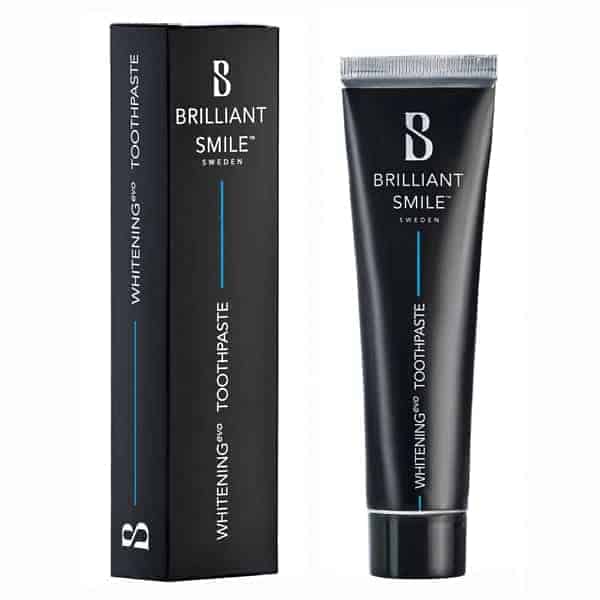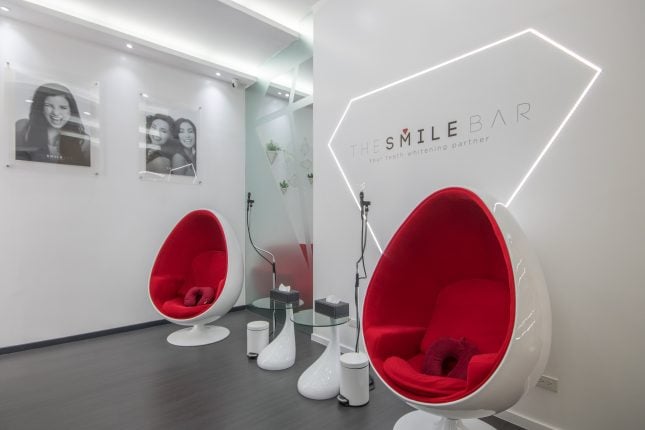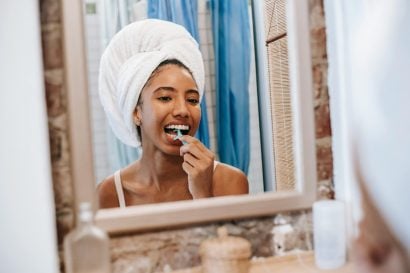What Foods and Drinks Stain Your Teeth the Most?
From morning coffee to that glass of red wine at dinner, many everyday indulgences can leave their mark on your smile. In Bangkok’s tropical heat, chilled teas and colorful beverages are everywhere—but they can accelerate staining if you’re not careful. Common culprits like coffee, tea, red wine, berries, beets, and tomato-based sauces are loaded with pigments and acids that latch onto your enamel. Fortunately, with professional teeth whitening in Bangkok, you don’t need to give up your favorites to maintain a radiant smile.
Not All Tooth Stains Come from Bad Habits
You might be surprised to learn that even a healthy diet can cause staining. At The Smile Bar Bangkok, we often see clients who are diligent about oral hygiene but still struggle with dullness. That’s because tooth staining is usually a gradual buildup—caused by natural pigments, acids, and tannins in many everyday foods and drinks.
Even if you brush regularly, enamel can become porous over time due to age, habits, or acidic exposure. Once it’s worn down, it traps colors more easily, leaving behind those stubborn stains.
The Science Behind Tooth Staining
When you consume foods that stain teeth—like coffee, tea, red wine, or tomato-based sauces—pigments and chromogens settle into those pores. Tannins, found in wine and tea, act like a binding agent, making it harder for stains to be removed. Acidic and sugary foods don’t just dull the color of your teeth—they also erode enamel, making your teeth more vulnerable to staining.
Over time, the outer enamel thins, revealing the more yellow dentin underneath. Even brushing your teeth twice a day may not stop the buildup if you’re frequently exposed to tooth-staining foods and drinks.
At The Smile Bar Bangkok, we use safe, targeted whitening treatments to lift surface stains gently and help you maintain naturally white teeth—without cutting out the foods you love.
Why Some Foods and Drinks Are Worse for Your Smile
Tooth enamel feels smooth, but it’s actually covered in microscopic pores. Acidic or abrasive foods can weaken this surface, exposing the softer yellow dentin below. Once compromised, it’s easier for pigments and chromogens to cling to the enamel. Tannins—found in drinks like tea and wine—act like adhesive, helping stains set in deeper.
Curious about which everyday items might be affecting the color of your smile? Here’s our breakdown of the 10 teeth-staining foods and drinks most likely to dull your enamel—especially if you enjoy them regularly in Bangkok’s vibrant food scene.
10 Common Foods and Drinks That Stain Teeth
1. Coffee and Tea
- Dark pigments in coffee and tannins in tea—especially black varieties—impact the surface of your teeth and make both major contributors to yellowing teeth.
2. Red and White Wine
- Red wine is well-known for its staining power, but white wine’s acidity can also weaken enamel and prime it for discoloration.
3. Berries and Dark Juices
- Blueberries, pomegranates, and other dark fruits offer great health benefits—but their deep pigments can also cause teeth staining quickly, especially when juiced.
4. Tomato-Based Sauces
- Vibrant and acidic, these sauces can darken your teeth over time, especially if eaten frequently.
5. Soy Sauce and Balsamic Vinegar
- These dark, flavor-rich liquids cling to enamel and contribute to staining when used often.
6. Beets
- Nutritious but intense in color, beets (especially in juice form) can easily stain enamel.
7. Curry and Turmeric
- Bright spices like turmeric are notorious for staining—not just clothing, but your teeth too.
8. Cola, Sports Drinks, Soft Drinks but Overall Sugary Drinks
- These combine acids, sugars, and artificial colors that erode the enamel of your teeth, making it vulnerable and leave intrinsic stains, especially with frequent sipping.
9. Dark Chocolate and Candy
- Some chocolates and brightly dyed candies stick to teeth and leave behind discoloration, particularly if they’re chewy or sugary.
10. Tobacco Products
- Not a food or drink, but worth mentioning: smoking or chewing tobacco causes some of the deepest, most stubborn discoloration of your teeth.
How to Prevent Tooth Stains Without Giving Up What You Love
You don’t have to overhaul your lifestyle to protect your smile. Smart habits make a big difference:
-
Rinse with water immediately after consuming tooth-staining foods or drinks.
-
Use a straw with iced teas, sodas, or energy drinks to limit contact with your teeth.
-
Avoid brushing your teeth after eating acidic foods for 30 minutes — your enamel needs time to recover.
-
Brush and floss daily, including your tongue, to remove trapped pigments.
-
Snack on crunchy fruits and vegetables like apples and celery, which naturally help clean your teeth.
-
Try to limit carbonated and sugary drinks when possible.
Prevent Staining with Consistent Care
Consistency is key when it comes to keeping your teeth white in Thailand, where vibrant foods and drinks are part of daily life. Here’s how to strengthen your prevention routine:
- Schedule regular dental cleanings or professional whitening sessions to lift deep-set stains.
- Use whitening toothpaste approved by dental professionals—just avoid abrasive options that may harm enamel.
- Chew sugar-free gum between meals to stimulate saliva production, which helps neutralize acids.
- Drink plenty of water throughout the day, especially after eating or drinking something pigmented.

Use WhiteningEVO toothpaste daily to gently remove surface stains and protect your enamel from new discoloration.
When to Consider Professional Whitening in Bangkok
If stains have already set in, even the best toothpaste may not be enough. At The Smile Bar in Bangkok, we offer advanced cosmetic whitening treatments that safely and effectively lift stubborn stains.
Our studio combines modern dental care with a spa-like atmosphere, making it the perfect destination for anyone seeking aesthetic results in a calm, hygienic setting. With English-speaking staff, global hygiene standards, and hassle-free online booking, we’re proud to serve Bangkok’s vibrant mix of expats, tourists, and locals.

The Smile Bar’s Scandinavian-inspired studio offers a relaxing space for professional whitening treatments in central Bangkok.
Plan Your Visit
Located in central Bangkok—just off Siam BTS station in Siam Square Soi 5—The Smile Bar offers a convenient, design-forward destination for smile enhancement.
Book your whitening session in Bangkok today—your upgraded smile is just one visit away.
Conclusion – TL;DR
Many of your favorite foods and drinks can stain your teeth—even healthy ones like berries or tea. Coffee, wine, sauces, and colorful Thai dishes all leave their mark over time. But with smart habits and professional whitening in Bangkok, you don’t have to give them up to keep a bright, confident smile.
Frequently Asked Questions
What should I avoid after a whitening session?
- For 72 hours, steer clear of red wine, berries, curry, soy sauce, and other deeply colored foods—your teeth are more porous and prone to discoloration during this time.
Can Thai food darken my teeth?
- Yes. Dishes made with turmeric, curry paste, or richly colored sauces may dull your enamel over time. Rinsing with water after eating helps limit the effect.
Does food coloring affect the color of your teeth?
- Absolutely. Artificial dyes found in candies, drinks, and processed snacks can gradually alter your tooth color if consumed regularly.
Do fruits like blueberries change tooth color?
- Dark fruits are packed with natural pigments that can dull your smile. It helps to rinse your mouth or brush soon after eating.
Can diet coke lead to tooth discoloration?
- Even without sugar, diet sodas are acidic and contain colorants that can wear down enamel and leave your teeth looking less bright.
Which foods are known to cause yellowish buildup on teeth?
- Tomato sauce, curry, and turmeric are common culprits behind a yellow-toned smile.
Does turmeric stain teeth?
- Absolutely. It’s a powerful dye and can easily cling to enamel if consumed regularly.







